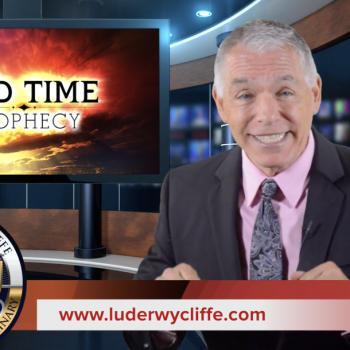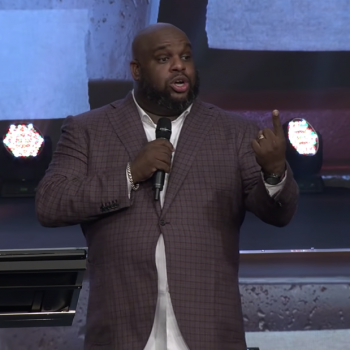CBS recently aired a short documentary called “Deconstructing My Religion,” focused on people who left their faith and how it may have traumatized them. While a subject like that could take much, much longer to explore, the focus here was on evangelical purity culture with the main voice being Linda Kay Klein, the former abstinence-only believer whose book Pure details the problems with the Purity Movement.
Get Religion, a website whose writers get upset whenever the media says harmful Christian beliefs are harmful, suggests the documentary is unfair because it’s somehow anti-evangelical and didn’t cover the full spectrum of Christianity in 26 minutes.
But after sitting through the presentation and re-watching parts of it, I realized it wasn’t news, it was simply a diatribe with three talking heads talking about how they left white evangelicalism. I say “white,” because no ethnic minorities are featured. There’s the requisite academic patched in near the end and a few snatches from people at conferences and panels.
…
A narrator intones:
“Sex outside of heterosexual marriage in evangelical culture is considered a sin. In the 1990s, an entire industry was created to support this message and it continues today.”
Lord, are they kvetching about purity-themed Bibles, purity pledges and the like again? That complaint was run into the ground some time ago. The “True Love Waits Bible” was published in 1996, 22 years ago. Get over it.
That’s the sound of people who think culture war issues are only relevant when they’re personally affected.
Yes, the purity movement really kicked into high gear in the mid-90s. You know what that means? The kids who were directly targeted by it, like Klein, are now old enough to have a better understanding of how it influenced their lives. A lot of them say it seriously messed them up. Even the poster boy for the movement, Joshua Harris, has since apologized for the role he played in demonizing any kind of sexual experience before marriage.
So this is very relevant right now. CBS didn’t just choose a topic to stick it to Christians; they’re covering a relevant topic in which conservative Christians, under the guise of goodness and biblical values, hurt other people, and they’re featuring voices that ought to be heard on that topic.
That includes members of the “exvangelical” movement — the people who left evangelical Christianity or, as they might put it, the ones who say evangelical Christianity left them. They may still believe in the Christian God, but they want nothing to do with Christian culture. The documentary also, necessarily, covers the white evangelical support of Donald Trump, which is also relevant since it’s perhaps the most obvious example of religious hypocrisy and will undoubtedly have an affect on religious demographics in the nation for decades to come.
In any case, like most short news segments, not every voice is represented. I would have loved to hear commentary from atheists who left Christianity for reasons that have nothing to do with the culture wars but rather the realization that the church’s beliefs contradicted reality. But with limited time, you’re only going to see a slice of the story, and there’s nothing wrong with presenting this particular aspect of the faith.
As Professor Julie Ingersoll, of the University of North Florida, notes in the segment, former evangelicals may be the best people to critique the way these evangelical Christians think and act.
My colleague Neil Carter agrees with that, adding that atheists would benefit from hearing more of those voices:
Our brains toggle back and forth on an almost daily basis between these two opposite worlds that we’ve inhabited. We are culturally amphibious.
I would argue the secularist movement in general would do itself and everyone else a huge favor if they would learn to amplify voices like these in order to better understand what it is that they are up against.
If you’re looking for an alternative perspective, well, go to church. But for Christians who live in a bubble, hearing these voices may alert them to what people are saying outside of their insular communities.




It’s Moving Day for the Friendly ..."
It’s Moving Day for the Friendly ..."
It’s Moving Day for the Friendly ..."
It’s Moving Day for the Friendly ..."